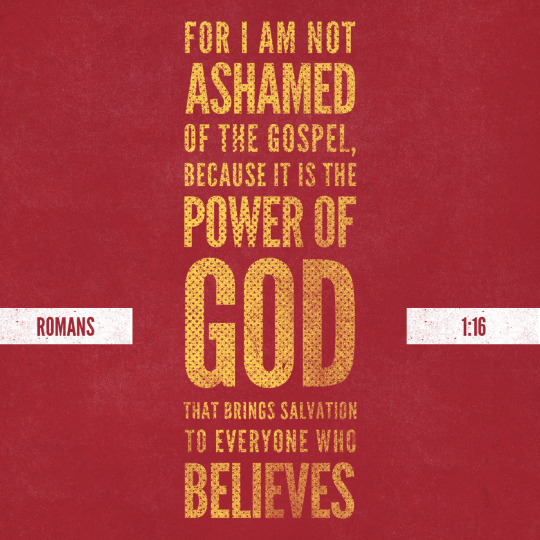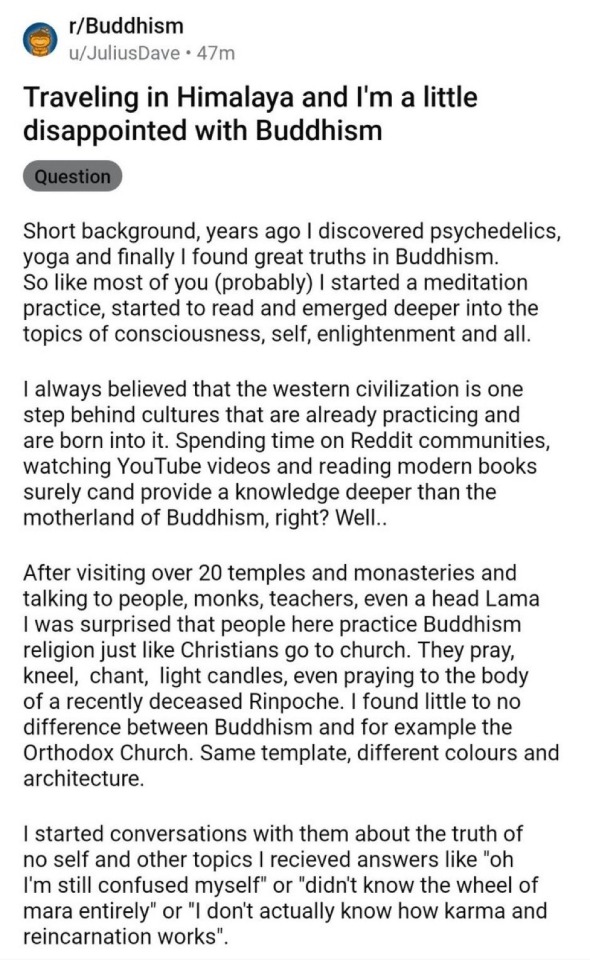#doctrinal development
Explore tagged Tumblr posts
Text
“One further difficulty arising in regard to the informal or ‘virtual’ inference that both Newman and Batiffol appeal to is the extent to which such reasoning is conditioned by cultural and local standards for judging what sorts of inference are congruent or natural. Batiffol, as we have seen, insists that no factors extraneous to the deposit of revelation affect the informal reasoning of the Church. What is defined in its developed form is the result of the Church’s own growing self-understanding alone, but this is to make a very large assumption about the gap between Christian reasoning and its cultural milieu. To take one example, Newman speaks of the evolving recognition of the Mother of God as ‘a loving Mother with clients,’ a ‘Patroness or Paraclete’ for those who turn to her for aid. The process by which Mary’s intercession comes to be seen as especially or uniquely potent is a complex and fascinating story to trace, but it is no disservice to the cultus of the Mother of God to note that the language of patron and client takes for granted a particular social order—not one that derives from Christian principle and self-reflection, and one indeed that Christian principle might well want to challenge in many respects. To put it more generally, informal inference is more vulnerable to the conditioning of historical and social circumstances than its defenders might want to allow, and this might suggest a certain caution about imposing the conclusions of such a process of inference on the entire Christian community throughout time and space.”
Rowan Williams, The Malines Conversations: The Beginnings of Anglican-Roman Catholic Dialogue
#rowan williams#doctrinal development#informal inference#blessed virgin mary#cult of the saints#patron and client
1 note
·
View note
Text
shri’iia’s perception of beauty is influenced by the drow superiority mindset in which she thinks drows are born beautiful therefore she is beautiful as well. others could be beautiful in their own right but it’s only drows who are truly beautiful because lolth said so and that’s also only specific to female drows as well lmfao. the moment her features gets altered into something more monstrous, and she does not look like herself anymore, shri’iia will think of herself as someone looks grotesque and she does develop an insecurity over her own looks. partial illithid shri’iia will wear capes with hoods often, and she generally tries to avoid any mirrors or anything where she will be reminded of her own features and if someone is looking at her intently - or for too long - she will start to get self conscious and will avoid their gaze.
#which then leads to the convo where u try to break up with spawn astarion bc she thinks she looks like a monster and he’s like wtf I don’t#care how u look like 😧 don’t tell me to break up with you ur stuck with me forever#but shri’iia just developing that insecurity…so interesting to me since she normally is so confident in regards of things like that ^#bc of that drow superiority mentality. but the moment she’s out of their visual standard she thinks she’s no good#which also fits with how she thinks she’s no good since she’s not exactly fitting in their standard to begin with (since she was born#without a noble house) so she spends her whole life overcompensating for that one (1) flaw and now she has so many#just shri’iia being forced to find her own self and identity outside of that doctrine 🤭#oc: shri’iia.
7 notes
·
View notes
Text
Feeding on God's Word: The Path to Spiritual Maturity
At the moment of faith in Christ, believers know very little about God, His will, or the many blessings He has provided. Spiritually, they are ignorant babies. This is not a negative, but the reality of the situation. Prior to salvation, the soul is filled with human viewpoint, which is often contrary to God and His Word. This is why Christians are directed to renew their minds (Rom 12:1-2).…

View On WordPress
#1 Peter 2:2#2 Peter 3:18#2 Timothy 3:16#authority of Scripture#Bible teaching#biblical doctrine#Biblical wisdom#capacity to love#Christian discipleship#Christian integrity#Christian walk#discernment#divine protection#Divine viewpoint#Ephesians 2:10#Eternal Perspective.#faith#faith development#feeding on Scripture#fruit of the Spirit#God&039;s Provision#God’s timing#godly decisions#good works#Grace#grace orientation#Hebrews 5:14#Holy Spirit#human viewpoint#image of Christ
4 notes
·
View notes
Text
Sometimes I draft Hinterland Doctrine analysis posts in my head and then don't post them because I convince myself that no one would care but SOMETIMES people reblog my ultra-long "my doctor says I should probably stop smoking" analysis still and it literally makes my day
#so this is to say that in 2024 I will be doing more shameless literary analysis of old ultralong fanfics#does anyone wanna hear my thoughts on why All Saints by Youremyqueen is the best canonverse character development I've ever seen or#I am also dedicated to being a Hinterland Doctrine scholar on this website and in my life
12 notes
·
View notes
Text

“For I am not ashamed of the gospel, because it is the power of God that brings salvation to everyone who believes.”
-Romans 1:16
#christian#jesus loves you#bibleverse#bible verse#christianity#jesus christ#christian bible#christian blog#christian living#christian doctrine#holy spirit#jesusislord#jesussaves#god loves you#gifts from god#belief in god#child of god#biblical scripture#bibletruth#yeshua#lion of judah#religion#church#discipleship#follower of jesus christ#repentance#born again#saved by grace#spiritual warfare#spiritual development
1 note
·
View note
Text
Life Beyond Mormonism: 10 Books and Resources That Might Help
Stepping away from a faith tradition—especially one that touches every aspect of life like Mormonism—can be both liberating and disorienting. If you’re navigating this path, you’re not alone. Many individuals have documented their experiences, researched the history, and formed supportive communities. Below are books and resources that countless people have found helpful in understanding…
#adult development#Alan Watts#authenticity#buddhism#ces letter#church#community#deconstruction#doctrine#exmormon#faith#faith deconstruction#faith journey#faith transition#groundlessness#healing#Jeremy Runnells#John Dehlin#Jon Krakauer#Letter for My Wife#meaning#mormon#mormon faith crisis#Mormon Stories#mormonism#nuance#perspective#philosophy#Psychology#purpose
1 note
·
View note
Text
A Latter-day Saint Perspective on Sola Scriptura, Creeds, and Divine Revelation
A Latter-day Saint Perspective on Sola Scriptura, Creeds, and Divine Revelation For many Christians, “Sola Scriptura” serves as a central guiding belief, emphasizing scripture as the sole authority. But Latter-day Saint theology offers a different perspective—one that values the Bible deeply while also embracing modern revelation, prophetic authority, and a broader view of God’s work. When…
#Authority of early church councils#Bible vs. creeds debate#Biblical authority vs. church tradition#Biblical evidence for prophetic revelation#Book of Mormon and biblical interpretation#Challenges to Reformed Theology#Defending open canon theology#Does the Bible support Sola Scriptura?#Early Christian councils and creeds#Historical development of Christian creeds#How creeds challenge the sufficiency of scripture#Latter-day Saint apologetics on Sola Scriptura#Latter-day Saint perspective on Reformed Theology#Latter-day Saint view of scripture#Nicene Creed and scriptural authority#Open canon of scripture#Open canon vs. closed canon debate in Christianity#Philosophical influence on Christian theology#Problems with relying solely on scripture for Christian doctrine#Problems with Sola Scriptura#Protestant dilemmas with Sola Scriptura and creeds#Protestant reliance on creeds#Restoration of divine revelation#Restoration theology and modern revelation#Role of living prophets in Christianity#Sola Scriptura critique#The necessity of ongoing revelation#The role of church councils in shaping Christian doctrine#Trinity doctrine and scripture#Why Sola Scriptura is inconsistent with Christian creeds
0 notes
Text
The Philosophy of Golden Mean
The philosophy of the Golden Mean is a concept rooted in ancient Greek philosophy, particularly associated with Aristotle. It refers to the idea that virtue lies in finding the moderate, balanced path between extremes. This concept is central to Aristotle’s ethical theory, where he argues that moral virtue is achieved by maintaining a balance between excess and deficiency in our actions and emotions.
Key Themes in the Philosophy of the Golden Mean:
Definition of the Golden Mean:
Moderation: The Golden Mean is the desirable middle ground between two extremes, one of excess and the other of deficiency. For Aristotle, virtue is not about having too much or too little of anything but about having the right amount, which is appropriate to the situation.
Moral Virtue: In Aristotle's Nicomachean Ethics, moral virtues are seen as states of character that lie between extremes. For example, courage is a virtue that lies between the extremes of recklessness (excess) and cowardice (deficiency).
Virtue as a Mean:
Examples of Virtues: Aristotle provides various examples to illustrate the Golden Mean:
Courage: Lies between recklessness (too much fearlessness) and cowardice (too much fear).
Temperance: Lies between self-indulgence (too much pleasure) and insensibility (too little pleasure).
Generosity: Lies between prodigality (excessive giving) and stinginess (insufficient giving).
Relative to the Individual: Aristotle emphasizes that the mean is relative to the individual and the situation. What is moderate for one person might be excessive or deficient for another, depending on their circumstances and abilities.
Practical Wisdom (Phronesis):
Role of Practical Wisdom: The ability to find the Golden Mean in any situation requires practical wisdom or phronesis. This is the intellectual virtue that enables individuals to make sound moral judgments and act virtuously.
Deliberation and Choice: Practical wisdom involves careful deliberation and choosing the right course of action that achieves balance. It is not simply following a rule but requires understanding the particulars of each situation.
The Golden Mean in Ethics:
Moral Development: According to Aristotle, achieving virtue through the Golden Mean is a matter of moral development and habituation. One becomes virtuous by repeatedly practicing moderate actions until they become second nature.
Moral Responsibility: The Golden Mean implies that individuals are responsible for finding the balance in their actions. This requires self-awareness and the ability to recognize when one is veering toward excess or deficiency.
Criticisms and Interpretations:
Not a Strict Formula: Some critics argue that the Golden Mean is not always applicable, as not all virtues fit neatly into a spectrum of extremes. For instance, justice is often seen as an absolute, rather than something that exists between extremes.
Cultural and Situational Variability: The idea of what constitutes a mean can vary greatly depending on cultural norms and individual circumstances, which makes it a more complex concept in practice.
The Golden Mean in Other Philosophical Traditions:
Confucianism: Similar ideas can be found in Confucianism, where the Doctrine of the Mean (Zhongyong) advocates for moderation and balance in all things, aiming for harmony and proper conduct.
Buddhism: The Middle Way in Buddhism also reflects a similar principle, advocating for a path of moderation between the extremes of asceticism and indulgence.
Applications of the Golden Mean:
Personal Conduct: The Golden Mean can be applied to personal conduct, encouraging individuals to seek balance in their emotions, behaviors, and lifestyle choices.
Leadership and Governance: In politics and leadership, the Golden Mean suggests that successful governance involves balancing different interests and avoiding extremes, whether in policy or behavior.
Influence and Legacy:
Impact on Western Thought: The concept of the Golden Mean has had a lasting influence on Western thought, shaping ideas about ethics, politics, and personal conduct. It has been invoked in discussions of moderation, balance, and the avoidance of extremes throughout history.
Modern Interpretations: Contemporary philosophers and ethicists continue to explore the relevance of the Golden Mean, particularly in discussions of virtue ethics, where it serves as a model for understanding the complexity of moral life.
The philosophy of the Golden Mean emphasizes the importance of balance, moderation, and the avoidance of extremes in the pursuit of a virtuous and fulfilling life. It highlights the role of practical wisdom in making moral decisions and encourages a nuanced approach to ethics, where virtue is seen as a mean relative to the individual and the situation. This concept remains a cornerstone of ethical thought, influencing both ancient and modern discussions of how best to live.
#philosophy#epistemology#knowledge#learning#education#chatgpt#ontology#metaphysics#ethics#Philosophy of the Golden Mean#Aristotelian Ethics#Virtue Ethics#Moderation#Practical Wisdom (Phronesis)#Moral Virtue#Moral Development#Balance and Extremes#Courage and Temperance#Doctrine of the Mean#Confucianism#The Middle Way#Ethical Decision-Making#Self-Discipline#Ethics in Leadership
1 note
·
View note
Text
sitting with my little freak and looking at the massive fat stack of content i have for him pre tadpole and then post tadpole its just a mesh croptop that says whore on top of an official recommendation for a board certified therapist
#party bicycle figuring out how to interact with other people without killing them has discovered bottoming#situation is developing but reporters on the ground are estimating 47 dead and 14 injured#quite literally his heroes journey is functionally identical to when a repressed catholic moves to seattle and discovers the club scene#catholocism isnt even part of bhaaltist doctrine but that hasnt stopped him yet
0 notes
Text
I've heard people (inevitably Americans) say that "Buddhism isn't a religion, it's a philosophy," and it annoys me every time, because Buddhism is (and has been) absolutely practiced as a religion in Asia. Like I'm sure there are nuanced arguments people could make about why they would call it just a "philosophy," but it seems like it's a lot of Westerners who have latched onto Buddhist ideas. Read pre-modern Japanese stories in which people only have to recite the nenbutsu or have faith in Amitabha in order to be reborn in the Pure Land, and tell me it's a "philosophy, not a religion." It can certainly be both.

lol. lmao even.
#there are literally Buddhist hells#also there are many different sects of Buddhism and it is practiced differently across both sects and countries#Buddhism has been around for centuries and interacted with other religions and developed in different ways#something feels vaguely Orientalist about calling it just a philosophy not a religion#like there is a lot of Christian writing debating Christian doctrine but people never claim that Christianity is just a “philosophy”
3K notes
·
View notes
Text
Basics of The Sith Code
Peace is a falsehood to blind me from the truth, the truth that only through my passion and will can start on the path towards freedom and become great. There is only passion. I use my passion to gather strength in the dark side and fuels my purpose. My strength gives me power over my enemies and the physical skills, abilities, and ability to face myself and know myself well. Tapping into my…
View On WordPress
0 notes
Text
Leading Candidates The Next Pope: Who Are The Frontrunners to Succeed Pope Francis?
Source
Luis Antonio Tagle (Philippines)

Currently the betting favorite at 3:1 odds, Cardinal Luis Antonio Tagle, 67, is considered a strong contender to continue Pope Francis's progressive agenda.
Tagle, an advocate for inclusion and evangelization, has significant experience leading the Congregation for the Evangelization of Peoples and was a trusted figure in Francis's inner circle.
AN: upon further research he heavily opposes abortion and same sex marriage
Pietro Parolin (Italy)

At 4:1 odds, Cardinal Pietro Parolin, 70, is one of the most experienced Vatican officials. In his role as the Vatican's Secretary of State since 2013, he has played a major part in diplomatic affairs, including sensitive negotiations with China and Middle Eastern governments.
Parolin is seen as a moderate theological candidate, someone who could provide stability while still maintaining some of Francis's reforms. His deep ties to Vatican bureaucracy make him a strong contender for those who favor continuity.
Peter Turkson (Ghana)

Currently at 5:1 odds in betting markets, Cardinal Peter Turkson, 76, is a well-known figure in the Church's social justice circles. As former head of the Dicastery for Promoting Integral Human Development, Turkson has been vocal on issues such as climate change, poverty and economic justice.
Turkson's election would mark a historic moment as the first African pope in centuries. The most recent African pontiff was Pope Gelasius, who served from 492 to 496 AD. Born in Rome to African parents, Gelasius was known for his extensive theological writings and strong advocacy for charity and justice for the poor.
Peter Erdő (Hungary)

A leading conservative candidate, Cardinal Peter Erdő, 72, is currently at 6:1 odds. A respected canon law scholar, Erdő has been a strong advocate for traditional Catholic teachings and doctrine. He previously served as head of the Council of European Bishops' Conferences and has emphasized theological orthodoxy.
For those seeking a return to the conservatism of John Paul II and Benedict XVI, Erdő would represent a major shift away from Francis's approach.
Angelo Scola (Italy)

At 8:1, Cardinal Angelo Scola, 82, is a long-standing papal contender. He was among the favorites in the 2013 conclave that ultimately elected Pope Francis. Scola, a former Archbishop of Milan, has deep theological roots and appeals to those who support a more centralized and hierarchical Church.
His traditionalist stance makes him a strong candidate for those looking to pivot away from Francis's reforms, but his age may work against him.
1K notes
·
View notes
Text
#Climate Change#Environment Law and Policy#Forest Conservation#Sustainable Development#Public Trust Doctrine
0 notes
Note
*raises my hand with great respect* Mx. The Croaker, might it be possible to enlist a Woman to be judge in such a situation? Or perhaps a whole Women Jury? Then perhaps we could be Creating More Opportunities For Women, which I believe I have heard discussed by those who proclaim the feminist belief system.
but croaker what if i’m a woman who has been hurt by another woman. how far does your vengeance go?
Well, according to the laws of Dark Feminism, I must defend all women with my blade! But... I cannot harm a woman. That would be very anti-feminist of me. So... I guess... the most feminist action would be to be completely neutral and ambivalent to your suffering? Kind of throw my hands up and ignore the problem as there is not currently a man for me to destroy in glorious vengence? Am I doing Tumblr Feminism correctly?
#I have been attempting to understand this new development of doctrine even as it confuses me#despite the fact that I worry about these emo witches who may very well be in league with str*nge a*ons#probably they are fine though. the croaker is Vriska kin after all#the brotherhood#the sisterhood#croaker’s wacky muppet friends
243 notes
·
View notes
Note
What would be the requirements for someone to be able to "do alchemy" again? Like, could a person or people raised in total isolation from modern culture and science "do alchemy"? Or would it require the resurrection of the ideas, beliefs, and circumstances that birthed Zosimos and Jabir?
Oh good question!
Short answer is probably not.
Alchemy isn't just a set of techniques, it's also a culture. Occidental alcemy was the result of dozens of different social factors at once. Egyptian temple metallurgists out of work because of costly Roman wars, Alexandrias unique situation as a center of trade and learning, the relative abundance of its mines, etc.
A person can't invent alchemy in the same way that a person could invent cartomancy. To do fortune telling with cards, all you need is a deck of cards. To invent alchemy, you need both a class of metallurgists and a class of religious scribes interacting in specific structured ways.
I don't know much about Eastern religions, but it's my understanding that "Chinese alchemy" developed under similar circumstances. There was an interaction between medicinal proto-chemists and the daoist scribal class that produced a new set of practical techniques with religious doctrines to match.
524 notes
·
View notes
Text
9th Lord in Houses
1st House
You are in a good connection with your higher spiritual side, and you seek to understand the world from a higher perspective. Due to your virtuous nature and openness, you are bound to be fortunate in life, in terms of education, wealth and health. You try always to do what is right and you may find a good support from governing powers.
2nd House
You are scholarly and knowledgeable, and you bring good fortune to your family. You may seek to understand the world through the economical accumulation and affluence. Self-expression in terms of philosophical matters may fit you very well. Your family life will be happy.
3rd House
You may seek learning and understanding of life in the way you assert yourself: in terms of initiative and action. You may be easily motivated by spiritual principles or people who are on the path of spiritual development. When asserting yourself you have to be aware of the higher purpose behind your actions. You are bound to be successful in your endeavors and your siblings will be fortunate.
4th House
Spiritual or religious principles or practices sooth your heart and give you comfort. You may have gotten introduced to such principles from your mother or someone very close to you. You will be fortunate and gain possession of good property, real-estate or land as well as vehicles.
5th House
You are a virtuous and fortunate individual, who devotes him/herself to study of higher education and knowledge. You may be a well respected teacher or a leader and you try to uplift people with your wisdom. You are respectful to your elders and you communicate well with your children, which will be very fortunate.
6th House
It might be hard for you to acquire higher education and spiritual knowledge, and even though you may gain it the process of gaining it might prove quite irritating and annoying. Your relationship with your father might be lacking and your father's profession might be linked with medical science.
7th House
You are attracted to people who are virtuous and knowledgeable, sharing their wisdom freely with you. Your build your relationship upon sound principles of devotion, respect and moral values. Due to this your marriage will be happy and your spouse will be a reservoir of moral and spiritual values.
8th House
There is a hesitation in you when it comes to accepting new doctrines of religious or spiritual principles. To you it needs to be explored and analyzed, while in actual practice it tends to confuse you. It would make you feel vulnerable and weak if you would accept a religion or a spiritual path without deep and long consideration. In a way you hold back on the flow of fortune and good luck in your life, so you merely get a meager reward that expected. Your relationship with your father may suffer.
9th House
You are very spiritual, open-minded and a fortunate person. You are endowed with higher learning, wisdom and good moral values. You feel close to the divine aspect of yourself. Consequently you'll be lucky in life, financially fortunate and gain great happiness from your siblings and your grand-children.
10th House
It is very important to you to grow into a positive role in society. You take your moral values with you to work and your reputation and social image is very important to you. Your career is therefore bound to be very fortunate and successful. You always want to do the right things, you will be popular and rise in power and influence.
11th House
You are very affluent and open minded. You always seek to expand your opportunities and you will always have plenty of resources. You can be very inspiring and uplifting to others, and good at guiding them with proper principles to realize their dreams.
12th House
It is just like all your attempts to expand your horizon, to achieve higher education or higher spiritual teaching, get diffused and aimless when you try to pull them through. You need to transcend the selfish attachment you might have to such an endeavor. Indeed when you indulge in selfless acts of kindness and charity, you may discover the reservoir of knowledge within yourself.
#astrology#astrology observations#zodiac#zodiac signs#astro community#astro observations#vedic astrology#astro notes#vedic astro notes#astrology community#9th lord in houses#9th house#9th lord in 1st house#9th lord in 2nd house
580 notes
·
View notes